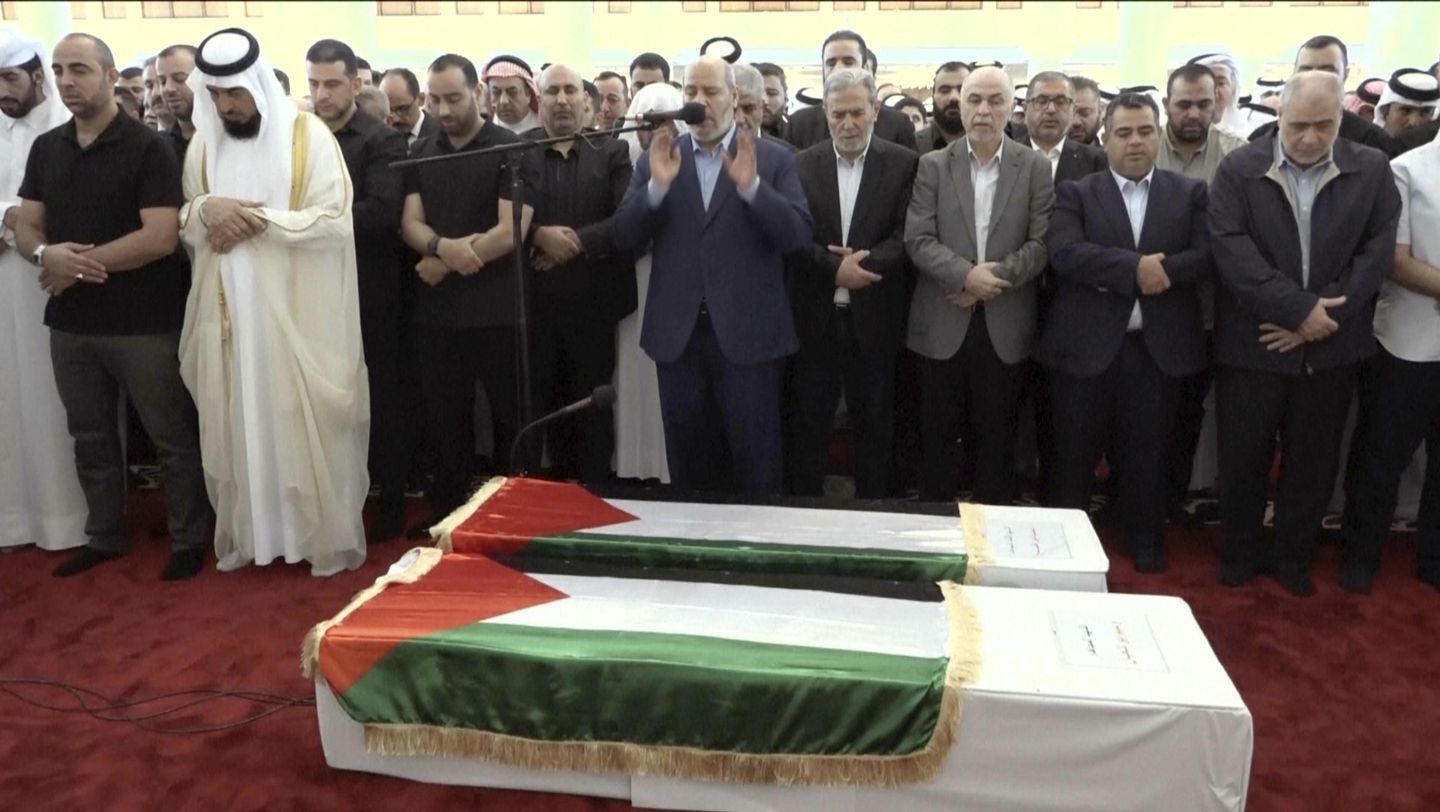The news of Hamas political chief Ismail Haniyeh’s assassination sent shockwaves through the region, with Iran’s Revolutionary Guard pointing the finger at Israel and accusing the United States of backing the attack. The incident, which occurred on Friday, has raised tensions in the already volatile Middle East.
According to state TV reports, the Revolutionary Guard claimed that a short-range projectile was responsible for the killing of Haniyeh. The attack took place in Qatar, where the Hamas leader was visiting at the time. The news of his assassination has sparked outrage among Palestinians and their supporters, who have long viewed Haniyeh as a symbol of resistance against Israeli occupation.
Iran’s accusations against Israel and the United States have further complicated the already complex relations between the three countries. The Revolutionary Guard’s claim that the attack was orchestrated by Israel with the support of the US has been met with skepticism by many in the international community. Both Israel and the US have denied any involvement in the assassination, with Israeli officials condemning the attack and expressing sorrow over Haniyeh’s death.
The news of Haniyeh’s assassination comes at a time of heightened tensions in the region, with Israel and Hamas engaged in a fragile ceasefire following the recent conflict in Gaza. The killing of the Hamas political chief has raised fears of a new wave of violence and instability in the region, with many worried about the potential for retaliation from Hamas and its allies.
The assassination of Ismail Haniyeh has also highlighted the ongoing power struggles within the Palestinian territories, with Hamas and the Palestinian Authority vying for control and influence. Haniyeh, who was seen as a key figure in the Hamas leadership, had been a vocal critic of the Palestinian Authority and its leadership. His death has left a void within the organization and raised questions about the future direction of the group.
In response to the assassination, Hamas has vowed to retaliate against those responsible for Haniyeh’s death. The group has accused Israel of carrying out the attack as part of a broader campaign to undermine the Palestinian cause and weaken Hamas. The Palestinian Authority has also condemned the killing, calling it a “cowardly act” and urging for an independent investigation into the incident.
The news of Haniyeh’s assassination has sparked protests and demonstrations in the Palestinian territories and around the world. Many have taken to social media to express their condolences and solidarity with the Hamas leader, while others have called for justice and accountability for those responsible for his death.
The international community has also weighed in on the situation, with many countries condemning the assassination and calling for calm and restraint in the region. The United Nations has called for an independent investigation into the incident and urged all parties to avoid escalating tensions further.
As the fallout from Haniyeh’s assassination continues to reverberate through the region, many are left wondering what the future holds for the Palestinian cause and the broader Middle East. The killing of the Hamas political chief has once again highlighted the deep-seated divisions and conflicts that continue to plague the region, raising questions about the prospects for peace and stability in the years to come.
In the midst of the uncertainty and turmoil, one thing remains clear: the assassination of Ismail Haniyeh has left a void that will be difficult to fill. His death has not only dealt a blow to Hamas and the Palestinian resistance movement, but it has also raised concerns about the future of the Palestinian territories and the broader Middle East. Only time will tell how the situation will unfold, but one thing is certain: the region is once again on edge, with the specter of violence and conflict looming large.









